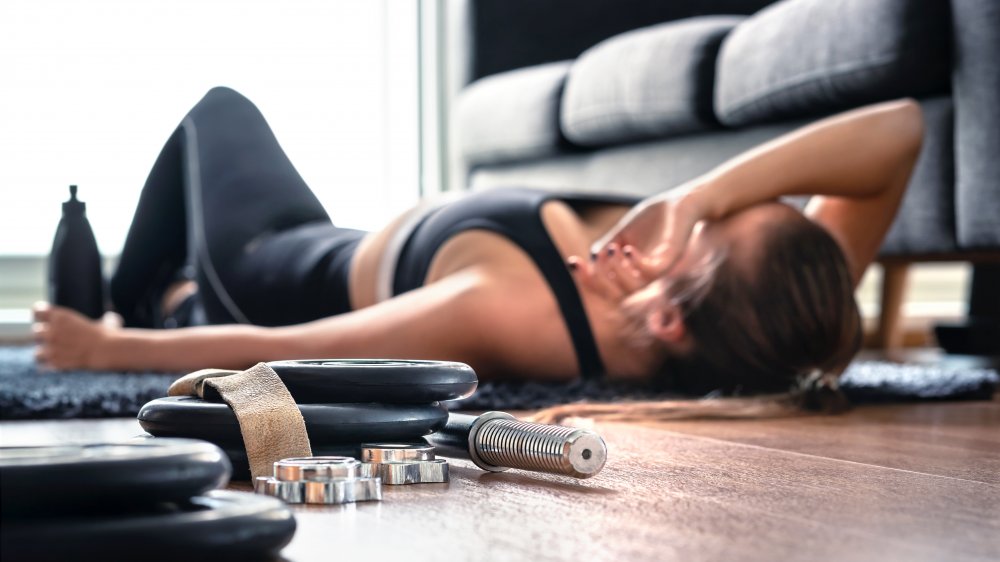The Real Reason You Feel Nauseous After Working Out
If you've ever felt sick immediately after working out, know that you're not alone. And it's not necessarily because you're unfit. According to Stephen Simons, M.D., director of sports medicine at St. Joseph Regional Medical Center in Indiana, it actually has to do with your blood flow. "When you begin exercise, there's a shifting of blood flow away from GI tract and to the working muscles," Simons explained to Women's Health, adding that this change in flow is what makes you feel ill. Also, the simple act of your stomach contents being jostled around can result in nausea as well.
And the more intense your work out is, the more intense your nausea can be. As exercise physiologist Joel Seedman, Ph.D., told SELF, "The harder your muscles work, the more oxygen they need, but after a certain point, your body is unable to match the oxygen demand with the intensity of the exercise, so you begin to build up metabolic wastes in your body such as hydrogen ions, carbon dioxide, and lactic acid." Basically, your body can't always handle this and, as a result, you experience nausea.
What you eat before your work is key to preventing post-workout nausea
So, how do you prevent post-workout nausea? It all comes down to your eating habits. You need to learn to plan what (and when) you eat around your exercise routine. As Jim White, RDN, an exercise physiologist and owner of Jim White Fitness and Nutrition Studios in Virginia, explained to Health, "Eating too close to your workout won't give your digestive system enough time to start breaking it down, but eating too early may result in your feeling hungry and sluggish." He continued, "Everybody is different, but eating one to three hours before working out is the suggested window to prevent abdominal discomfort while still fueling your performance," he continued.
Ultimately, you need to be sensible about what you do and don't eat in the hours leading up to your exercise, ensuring that you stay away from foods that are too heavy. Essentially, prior to your workout, you should avoid high-fat and greasy foods and instead turn to lean protein and complex carbs. After all, no one wants to be running with a whole pizza in their belly.


